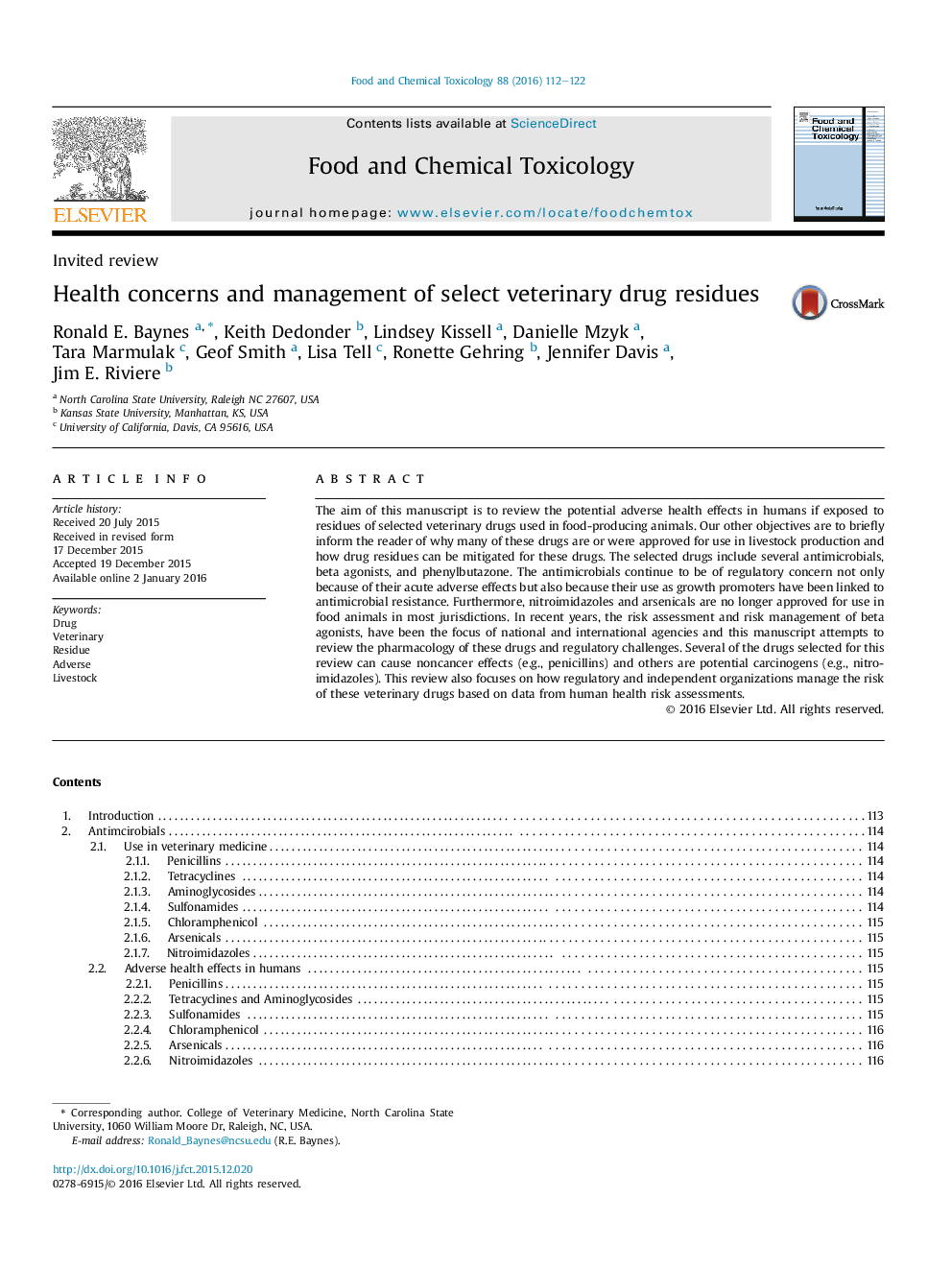| Article ID | Journal | Published Year | Pages | File Type |
|---|---|---|---|---|
| 5849424 | Food and Chemical Toxicology | 2016 | 11 Pages |
â¢The presence of several veterinary drugs in meat and milk products could cause adverse health effects in humans.â¢This manuscript reviews the former and/or current use of these selected drugs in livestock animals.â¢The potential health effects of these drugs and the risk management adopted by several organizations are also reviewed.
The aim of this manuscript is to review the potential adverse health effects in humans if exposed to residues of selected veterinary drugs used in food-producing animals. Our other objectives are to briefly inform the reader of why many of these drugs are or were approved for use in livestock production and how drug residues can be mitigated for these drugs. The selected drugs include several antimicrobials, beta agonists, and phenylbutazone. The antimicrobials continue to be of regulatory concern not only because of their acute adverse effects but also because their use as growth promoters have been linked to antimicrobial resistance. Furthermore, nitroimidazoles and arsenicals are no longer approved for use in food animals in most jurisdictions. In recent years, the risk assessment and risk management of beta agonists, have been the focus of national and international agencies and this manuscript attempts to review the pharmacology of these drugs and regulatory challenges. Several of the drugs selected for this review can cause noncancer effects (e.g., penicillins) and others are potential carcinogens (e.g., nitroimidazoles). This review also focuses on how regulatory and independent organizations manage the risk of these veterinary drugs based on data from human health risk assessments.
